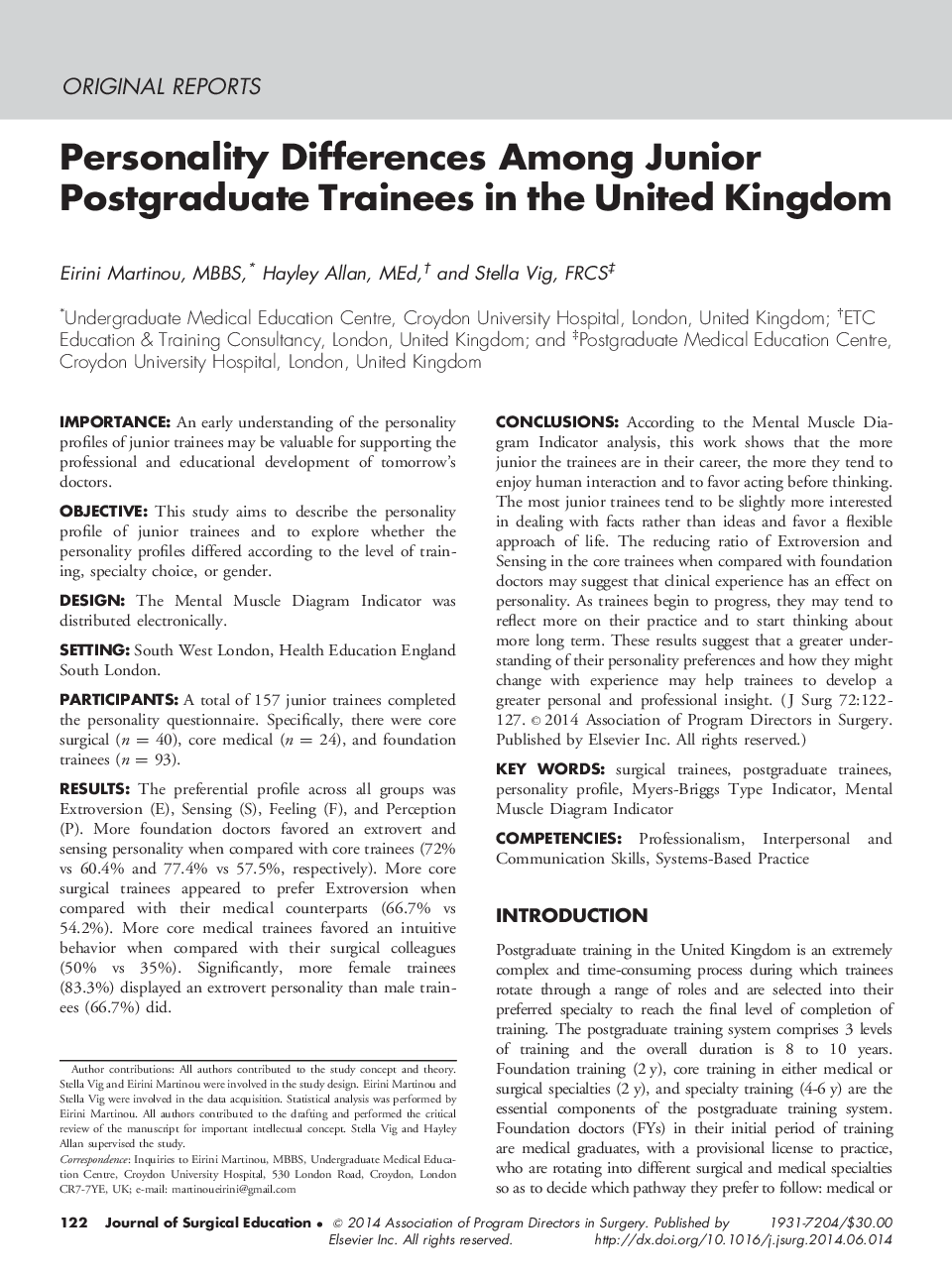| Article ID | Journal | Published Year | Pages | File Type |
|---|---|---|---|---|
| 4297790 | Journal of Surgical Education | 2015 | 6 Pages |
ImportanceAn early understanding of the personality profiles of junior trainees may be valuable for supporting the professional and educational development of tomorrow’s doctors.ObjectiveThis study aims to describe the personality profile of junior trainees and to explore whether the personality profiles differed according to the level of training, specialty choice, or gender.DesignThe Mental Muscle Diagram Indicator was distributed electronically.SettingSouth West London, Health Education England South London.ParticipantsA total of 157 junior trainees completed the personality questionnaire. Specifically, there were core surgical (n = 40), core medical (n = 24), and foundation trainees (n = 93).ResultsThe preferential profile across all groups was Extroversion (E), Sensing (S), Feeling (F), and Perception (P). More foundation doctors favored an extrovert and sensing personality when compared with core trainees (72% vs 60.4% and 77.4% vs 57.5%, respectively). More core surgical trainees appeared to prefer Extroversion when compared with their medical counterparts (66.7% vs 54.2%). More core medical trainees favored an intuitive behavior when compared with their surgical colleagues (50% vs 35%). Significantly, more female trainees (83.3%) displayed an extrovert personality than male trainees (66.7%) did.ConclusionsAccording to the Mental Muscle Diagram Indicator analysis, this work shows that the more junior the trainees are in their career, the more they tend to enjoy human interaction and to favor acting before thinking. The most junior trainees tend to be slightly more interested in dealing with facts rather than ideas and favor a flexible approach of life. The reducing ratio of Extroversion and Sensing in the core trainees when compared with foundation doctors may suggest that clinical experience has an effect on personality. As trainees begin to progress, they may tend to reflect more on their practice and to start thinking about more long term. These results suggest that a greater understanding of their personality preferences and how they might change with experience may help trainees to develop a greater personal and professional insight.
